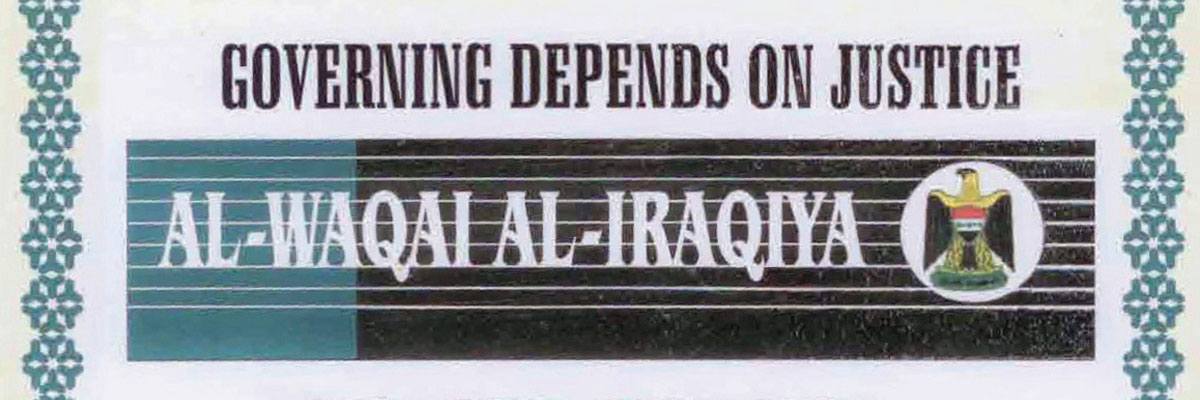In some areas of the world a nation’s laws can be out of reach for its citizens. In 2016 CRL completed a two-year project, supported in part by the Carnegie Corporation of New York, to digitize government documentation from ten African and Persian Gulf nations where access to information is sporadic or restricted, and the integrity of the public record is considered to be at risk. CRL now hosts the website Official Gazettes and Civil Society Documentation, presenting what may be in some cases the only published versions of new laws, legislative debates, and court decisions.
Despite previous cooperative efforts by major U.S. research libraries to collect comprehensive holdings of national gazettes, a particular challenge was obtaining the Iraq series. The English language version (Iraq Government Gazette) from 1931-1984 was held by Columbia University Law Library, Harvard, Library of Congress, and the Los Angeles County Law Library. However, only scattered holdings of the Arabic version al-Waqāʼiʻ al-ʻIrāqīyah ( ,ةيقارعلا عئاقولا 1922–) existed in U.S. libraries. Further, volumes from the critical years of Saddam Hussein’s regime—1990–1999—were not available in any North American or European library due to economic embargoes prior to and during the Gulf War. Only through extensive investigation was CRL able to secure print copies for the project through a vendor in Baghdad. These scarce volumes (some only photocopies) were obtained by the vendor from a book market in Iraq.
Economic sanctions against “bad actor” governments can work against access to some materilas for academic research. MEMP (Middle East Materials Project) specialists report that political turmoil jeopardizes the availability of government documentation: few or very poor quality documents are printed, and embargoes can prohibit overseas sales.
As more official documents are distributed electronically, new complications will arise for research access. Online sources can be revised, restricted, and even withdrawn at the discretion of government officials, or can disappear when regimes end. For example, the website of the Coalition Provisional Authority (CPA) in Iraq is no longer accessible online. Gone with it are the most of the gazettes published by the interim regimes from 2003–2006, as are Iraqi government sites maintained prior to the fall of Saddam Hussein. Through the Carnegie-funded effort CRL harvested nearly 20,000 issues of gazettes from websites of seven countries, and is exploring how ongoing official documentation can be saved from obscurity.
